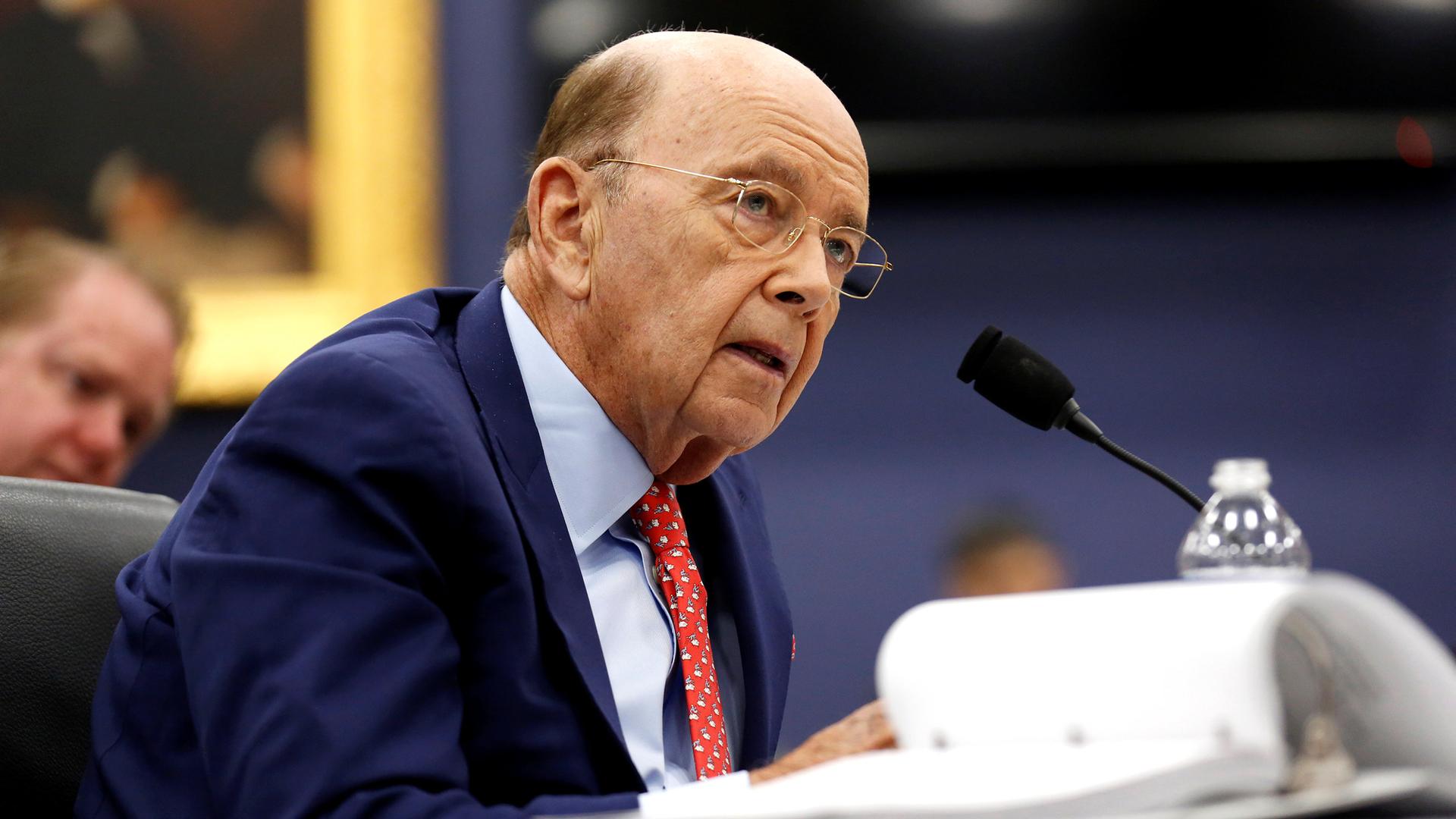US Secretary of Commerce Wilbur Ross testifies to the House Appropriations Commerce, Justice, Science and Related Agencies Subcommittee on the Commerce Department's FY2019 budget request, March 20, 2018.
US Commerce Secretary Wilbur Ross has decided to add a question about citizenship status on the 2020 Census as a desire for better enforcement of the Voting Rights Act, Department of Commerce said in a statement.
California sued to block the move arguing that it would discourage immigrants from participating.
"Secretary Ross determined that obtaining complete and accurate information to meet this legitimate government purpose outweighed the limited potential adverse impacts," it said.
The census, which is mandated under the US Constitution and takes place every 10 years, counts every resident in the United States. It is used to determine the allocation to states of seats in the US House of Representatives and to distribute billions of dollars in federal funds to local communities.
Ross said in a memo that the Voting Rights Act requires a tally of citizens of voting age to protect minorities against discrimination, and that getting this information as part of the census would make it more complete.
Opponents of a Census question about citizenship status say it could further discourage immigrants from participating in the count, especially when they are already fearful of how information could be used against them.
The State of California, which has a large immigrant population, responded early on Tuesday by filing a lawsuit in federal court against the commerce department and census bureau.
California Attorney General Xavier Becerra asked the US District Court in the Northern District of California to issue a preliminary injunction and rule that the move violates the constitution by interfering with the obligation to conduct a full count of the US population.
The announcement came as President Donald Trump tries to keep his campaign promise to build a border wall between Mexico and the United States and to crack down on illegal immigration.
He ordered stricter immigration enforcement and banned travelers from several Muslim-majority countries soon after taking office in January 2017.
"This untimely, unnecessary, and untested citizenship question will disrupt planning at a critical point, undermine years of painstaking preparation, and increase costs significantly, putting a successful, accurate count at risk," the Leadership Conference on Civil and Human Rights said in a statement.
Test surveys showed in late 2017 that some immigrants were afraid to provide information to US Census workers because of fears about being deported.
"This decision comes at a time when we have seen xenophobic and anti-immigrant policy positions from this administration," said Kristen Clarke, president and executive director of the Lawyers' Committee for Civil Rights Under Law.
Confidentiality
Immigrants and those who live with immigrants are troubled by confidentiality and data-sharing aspects of the count, Mikelyn Meyers, a researcher at the Census Bureau's Center for Survey Measurement, told a meeting of the bureau's National Advisory Committee in November.
Census researchers have said immigrants they've interviewed spontaneously raised topics like the travel ban and the dissolution of Deferred Action for Childhood Arrivals, a program that has protected from deportation young immigrants brought to the country illegally as children.
One person, Meyers said, told government interviewers: "The possibility that the Census could give my information to internal security and immigration could come and arrest me for not having documents terrifies me."
Citizen questions have appeared on the census in the past and are included on more frequent population surveys that are administered by the Census Bureau.
Ross said he met Census officials and considered arguments for and against the change made by interest groups, members of congress and state and local officials.
He said no evidence was provided to the agency that showed a citizenship question would decrease response rates among those who already "generally distrusted government and government information collection efforts, disliked the current administration, or feared law enforcement."
However, Ross said the commerce department was unable to determine how the citizen question would affect responsiveness.
"Even if there is some impact on responses, the value of more complete and accurate data derived from surveying the entire population outweighs such concerns," he said in the memo.
By Brendan O'Brien/Reuters
Reporting by Brendan O'Brien in Milwaukee; Editing by Eric Meijer, Paul Tait and Peter Graff.
